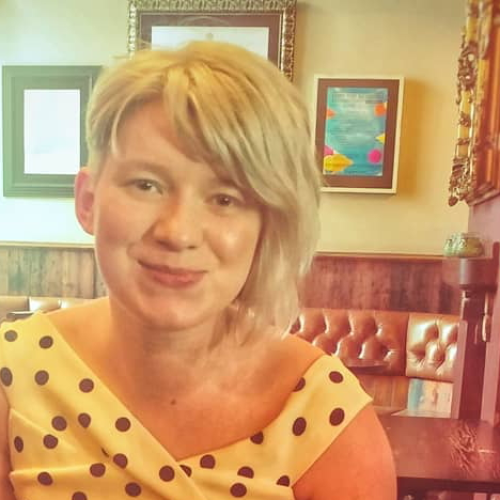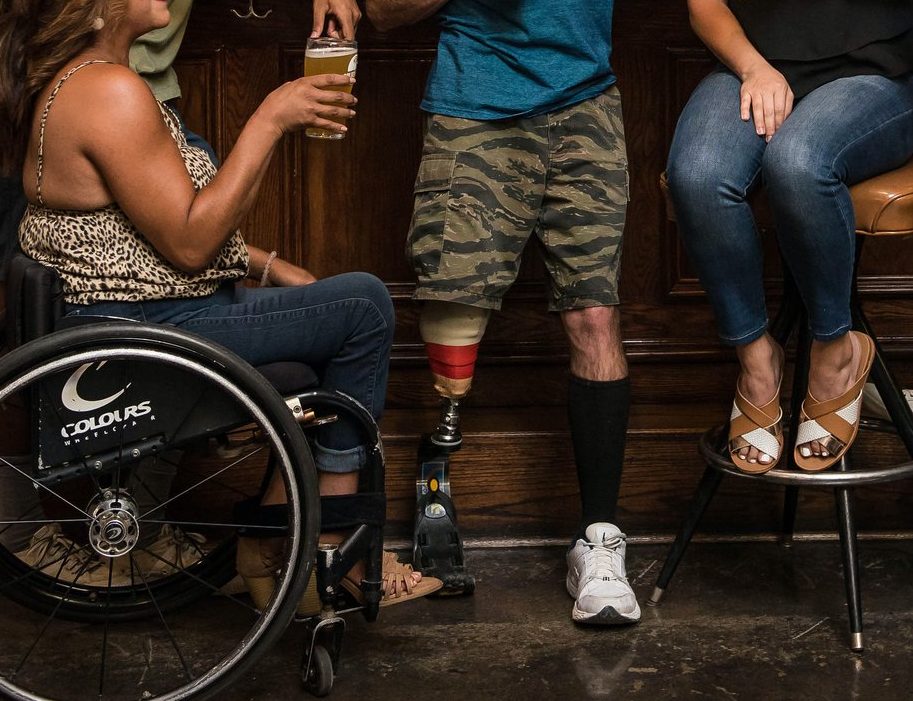Our culture tells disabled people that we shouldn’t be sexual beings with sexual relationships. We cannot be overtly sexual, obviously sensual, clearly dominant. We shouldn’t not be confident, explicit, or even human. Instead, we’re expected to be modest, restrained, and demure.
As media theorist Gamson noted, we are conditioned to see the world through media-generated images, using them to construct meaning about political and social issues. The lens through which we receive these images is not neutral but manifests the power and point of view of the political and social elites who operate it. And the extraordinary genius of this system is to make the whole process seem so normal and natural that the process itself becomes invisible. It is normalised without our consent and internalised.
In film, television, novels, and music, disabled people are scarcely represented at all, let alone as being sexually desirable or sexually empowered. We consume the same media as able-bodied people. However, our experiences are not represented. We can listen to WAP and share the sentiment, but not the feeling of inclusion.
“The reality is that disabled women have the same desires and needs as non-disabled women.”
Disability in public and in private
While our public lives in public spheres are accepted as valid topics for public discussion, our private lives and sexuality are stigmatized and excluded from public consideration. There are 14.1 million disabled people in the United Kingdom, each with their own private lives, many with favourite positions, kinks or turn-offs. However, the pervasive negative messages shape our experience and broader attitudes. As Rembis wrote in his paper on the social model of disabled sexuality, “sex and disability, disability and sex; the two words may seem incompatible.” The two concepts seem incompatible because the disabled experience has been shaped by those in power, refocusing the lens.
Disabled people have been forcibly infantilised, victimised, fetishised, with an added layer of misogyny applied to disabled women. Women are taught to attract the male gaze, to be attractive and sexual with the ultimate goal of experiencing sexual pleasure. As a result, disabled women feel pressure to hide their disability, deny it, or they will not attract a partner.
The reality is that disabled women have the same desires and needs as non-disabled women. Perhaps there will never be a disabled Sex and the City but there ought to be. Whether non-disabled people wish to see it or not, our world is populated by disabled Carrie’s and Samatha’s, women who exist as more than insipid inspirational saints. These are people who are attempting to navigate a hidden world of relationships, one-night stands and self-pleasure.
Disabled women on their sex lives
As an anonymous contributor told me, “[I have ]never had much trouble sex-wise” and further, “I find if you’re confident and you’re getting naked and can’t get your leggings off whoever you’re with will happily oblige.” She also stated that she could not be “on top”, but this had not presented an issue because she can still do “X, Y, and Z,” proving disabled women can have fulfilling sex lives.
As Kayela “LaLa Love” Damaze notes, “my sex life is usually very fun and exciting. I love experimenting with new positions (that I’m physically able to do), and I’m always looking for new ways to spice things up!” But she adds that “people don’t even expect to hear disabled people discussing sex confidently, and this is due to society not normalising disabled bodies, and that’s the problem.”
There is power in disabled women owning our sexuality and being dominant or sensual, especially while outdated notions about submissiveness and fragility persist. However, disabled women can still be submissive and fragile, if that’s what they’re into.
The pressure of societal expectations
We are not impervious to societal expectations, as Hannah Hill’s experience demonstrates. She sold nudes online before developing chronic pain and was open about her sexuality. As her pain spread, her confidence lessened, “I feel I am no longer a sexual being and that any sexy content I post is contradicting my daily struggle to look after myself.”
“People don’t want you to talk about chronic pain, or disability and all the symptoms, they don’t think disability and sexuality can combine, and I have unfortunately internalised that,” she says. This internalisation and, at least initial rejection, remains a common theme of the disabled female experience, as Damaze also noted.
“We are women, we are sexual beings, and we are disabled.”
“When I first got fibromyalgia, I was so furious at my body. I had serious resentment towards it, but after a few years, I realised that hating it would only make it worse.”
When you have been taught from birth that having a disability removes your sexuality, strips the desirability from your body and essentially gives you the sexual capabilities of a Barbie doll, you begin to resent your disability. You can feel that your relationship with your body has been irrevocably broken. The notion of saying, with conviction, that you are sexy and disabled, desirable and disabled feels like a radical act, an act of defiance and an act, ultimately, of power.
Disabled people ought to be proud of their bodies. We are underestimated and maligned, but we know our history. The media and broader society have reinforced the notion that we are not enough. For the sake of those who came before us and the generations that come after us, we need to insist that we are more than enough. We are people, we are sexual beings, and we are disabled.

I am a freelance writer who is interested in the rights of disabled women, from our involvement in the #MeToo movement to dating, sex and relationships.

